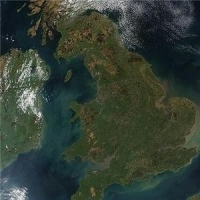Need advice? Call our experts free on
0800 090 1342
Mobile broadband survey reveals UK notspots
A new BBC survey has shown that many areas of the UK are still receiving unreliable mobile broadband connections.

A crowd-sourcing study conducted by Epitiro on behalf of BBC News revealed that many mobile broadband notspots still exist across the UK, including in a number of major towns and cities.
Gavin John, chief executive of Epitiro, said: "The BBC has undertaken a crowd-sourcing survey that is well beyond any scale seen by the mobile industry in this country or any other."
More than 44,000 volunteers provided data for use in the analysis, which revealed that testers were only able to receive a 3G signal 75 per cent of the time, despite operator claims of 90 per cent coverage or more.
In almost a quarter of cases, participants were only able to access a 2G signal, which offers around one-tenth of the speed of 3G, while the performance of different operators varied greatly from region to region.
For example, O2 was found to have poor coverage in western areas of Chichester while Vodafone had problems in the east of the city, suggesting that many networks are not operating with the expected levels of efficiency.
The report has been welcomed by mobile broadband providers, with Everything Everywhere - parent company of T-Mobile and Orange - stating that it is a "step in the right direction" in terms of providing transparent information about coverage to consumers.
Mobile broadband is becoming an increasingly commonly used commodity, with a recent report from Allot Communications showing that mobile data bandwidth usage increased by 77 per cent between January and the end of June, thanks largely to the popularity of video streaming.
To ensure that consumers continue to receive a reliable service, preliminary work is already taking place on the implementation of a 4G network across the UK, which will offer improved speeds.
